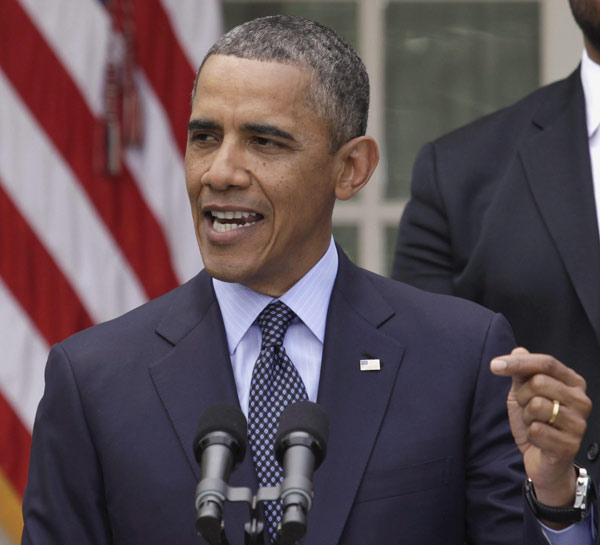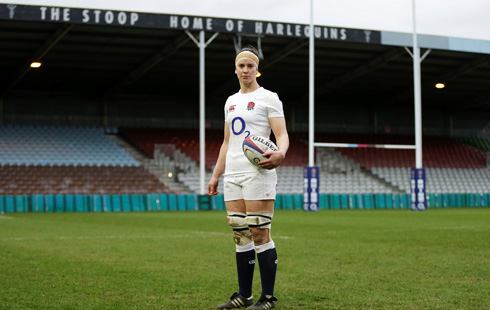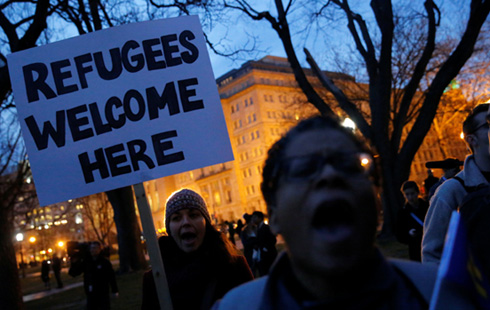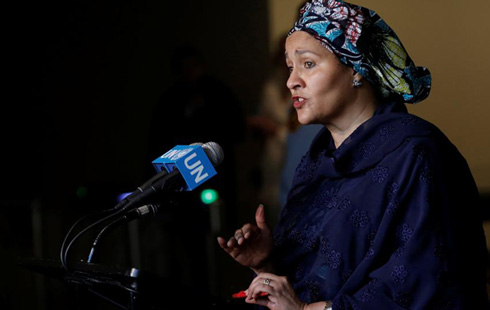US Senate blocks gun-control legislation
WASHINGTON - The US Senate on Wednesday rejected a bipartisan plan to expand background checks for gun buyers, dealing a crippling blow to President Barack Obama's campaign to curb gun violence after the Newtown school massacre.
Despite emotional pleas from families of victims of the Newtown, Connecticut, shootings and broad public support nationwide, the plan to extend background checks to online and gun-show sales failed on a 54-46 vote, six short of the 60-vote hurdle needed to clear the Senate.
"All in all, this was a pretty shameful day for Washington," an angry Obama said of the vote, adding the effort "is not over."
 |
|
US President Barack Obama delivers a statement on commonsense measures to reduce gun violence in the Rose Garden of the White House in Washington, April 17, 2013. [Photo/Agencies] |
The amendment by Democrat Joe Manchin of West Virginia and Republican Pat Toomey of Pennsylvania had represented Obama's best hope to pass meaningful gun-control legislation after the December massacre of 20 children and six adults at an elementary school in Newtown.
"Our hearts are broken. Our spirit is not," Mark Barden, the father of a victim of the Newtown shootings, said at the White House after the vote, with Obama looking on. "We always knew this would be a long road. We don't have the luxury of turning back."
Other measures backed by Obama - including a proposal to ban rapid-firing "assault" weapons like the one used in Connecticut - also failed in a series of Senate votes that starkly showed the lingering political power of gun rights defenders and the National Rifle Association.
"It came down to politics," Obama said, adding too many senators had worried a vocal minority of gun owners would come after them in the next election.
The votes were the culmination of weeks of intense negotiations and lobbying over Obama's proposed gun restrictions. The defeat of the background checks amendment could doom the biggest package of gun legislation Congress has considered in two decades.
"Shame on you!" a spectator in the gallery shouted as the tally was announced by Vice-President Joe Biden, who presided over the Senate votes.
Political momentum for new gun-control laws had dissipated after December's shooting. Opponents criticized the proposals as government overreach that would infringe on the constitutional right to bear arms, and the NRA mounted a strong lobbying effort against it.
"Show some guts," Democratic Senator Dianne Feinstein told her colleagues before they voted on her amendment to ban assault weapons, which drew support from only 40 senators.
Four Democrats who will face re-election in conservative, gun-friendly states opposed the Manchin-Toomey background checks amendment - Heidi Heitkamp of North Dakota, Mark Begich of Alaska, Mark Pryor of Arkansas and Max Baucus of Montana.
Senate Democratic Leader Harry Reid supported the measure, but changed his vote after it was apparent it would lose in order to preserve his option to bring the measure back up in the Senate.
Four Republicans backed it: Toomey, Susan Collins of Maine, John McCain of Arizona and Mark Kirk of Illinois.
Political payback
Supporters promised political payback for foes of the amendment. Former US Representative Gabrielle Giffords, severely wounded in a 2011 mass shooting in Arizona, said in a joint statement with husband Mark Kelly that the Senate "ignored the will of the American people."
"We will use every means possible to make sure the constituents of these senators know that their elected representatives ignored them, and put Washington, D.C. special interest politics over the effort to keep their own communities safer from the tragedy of gun violence," they said.
The Manchin-Toomey background checks amendment allowed exemptions for private sales or gifts between families and friends and prohibited the creation of a national registry of guns. Polls show more than 80 percent of Americans support expanded background checks.




















